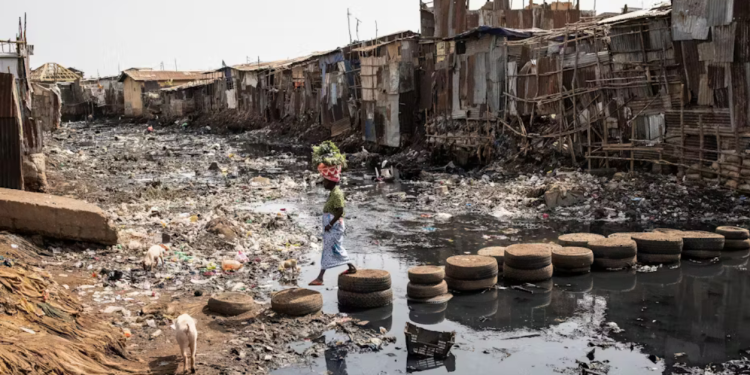By Sulaiman Aruna Sesay
Sierra Leone is one of the poorest countries in the world, with over 60 percent of the population living below the national poverty line. The country has faced several crises, including civil war, Ebola, Covid-19, and natural disasters, which have further exacerbated poverty levels. The question now is, how much longer can Sierra Leoneans tolerate poverty?
It is no doubt that poverty is a major problem in the country, affecting people’s access to basic human needs such as food, healthcare, education, and sanitation. The government has implemented several poverty reduction programs, with the ambitious goal of reducing poverty by 30 percent by 2030. Progress has been slow, and the goal seems unrealistic given the current circumstances.
Corruption within the government has hindered progress in poverty reduction efforts. Sierra Leone ranks 117 out of 180 countries in the Corruption Perceptions Index, indicating a high level of corruption. This corruption has resulted in funds meant for poverty reduction programs being misused or embezzled by government officials, further delaying progress.
Sierra Leone’s economy heavily relies on agriculture, which is susceptible to natural disasters such as floods and droughts. These disasters have caused widespread devastation, destroying homes, crops, and livelihoods. The country lacks adequate disaster preparedness and response mechanisms, which has led to slow recovery and further deepening poverty levels.
Despite all of these challenges, Sierra Leoneans have displayed remarkable resilience and determination to overcome adversity. Individual efforts such as communal farming, microfinance, and entrepreneurship have shown potential in reducing poverty levels. These efforts are limited to individual communities and cannot address poverty on a national scale.
The government must do more to address poverty in the country. They need to prioritize poverty reduction efforts by allocating more funds and ensuring transparency and accountability in the implementation of poverty reduction programs. They need to invest more in disaster preparedness and response mechanisms to reduce the impact of natural disasters. The government should also diversify the economy to reduce reliance on agriculture and create more job opportunities.
Poverty is a significant problem in Sierra Leone, and it cannot continue. Sierra Leoneans have shown their resilience and determination, but they need the support of the government. Poverty reduction efforts must be prioritized and implemented transparently and efficiently. The government must diversify the economy and invest in disaster preparedness and response mechanisms. Only then can Sierra Leoneans achieve a better standard of living and stop tolerating poverty.













